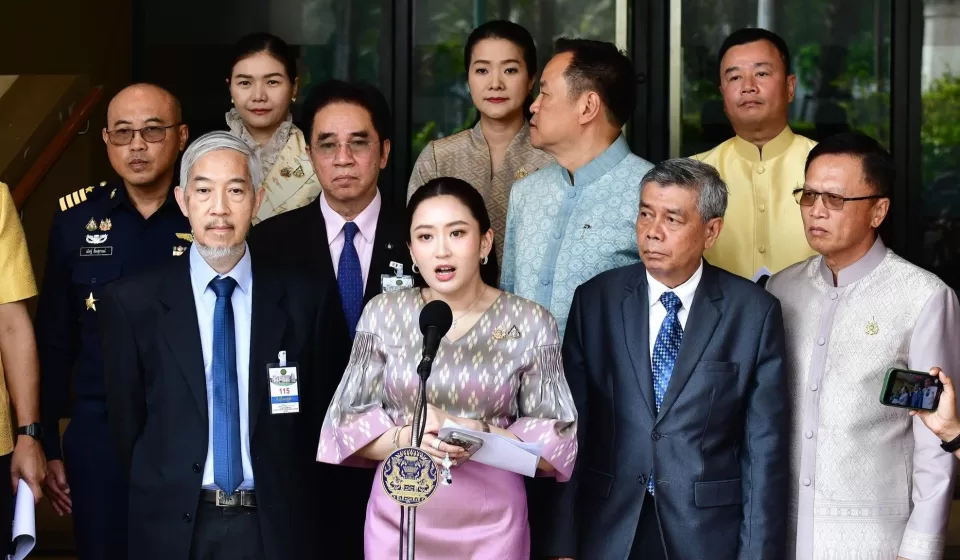The Thailand Gambling Regulation Reform 2025 has captured worldwide attention as the nation takes a historic step toward modernizing its gaming laws. For decades, Thailand maintained one of the most restrictive gambling environments in Asia, but this sweeping reform marks a major turning point. Designed to bring transparency, accountability, and economic growth, the new legislation introduces a regulated framework for online gambling, land-based casinos, and sports betting.
International observers see the Thailand Gambling Regulation Reform as a strategic move to align with global gaming standards while addressing long-standing issues such as illegal gambling and consumer protection. Beyond reshaping Thailand’s domestic market, the reform also opens opportunities for foreign investment, tourism development, and cross-border collaboration within Southeast Asia’s growing iGaming industry.
As governments and global operators analyze the ripple effects of this legislation, Thailand’s bold initiative could set a precedent for neighboring nations considering similar gaming reforms.
Objectives of the Law:
- Promote responsible gaming practices.
- Generate significant revenue for the government through taxation.
- Protect consumers by ensuring the legality and fairness of gaming operations.
- Discourage illegal gambling activities that pose risks to the community.
- Enhance the tourism industry by attracting international visitors to legal gaming establishments.
Background of Gambling in Thailand
History of Gambling Regulations
Gambling in Thailand has a complex history that dates back centuries. Initially embraced for social and cultural purposes, regulations began to emerge in the early 20th century. Significant milestones include:
- 1935: Thai laws imposed a ban on many forms of gambling, primarily to combat corruption and maintain social order.
- 2004: The introduction of the Lottery Act solidified the legal status of certain gaming activities.
- Ongoing discussions regarding Thailand Gambling Regulation Reform continue to shape the future of gaming in the country.
Current State of Illegal Gambling
Despite ongoing reforms, illegal gambling remains pervasive throughout Thailand. Key aspects include:
- Numerous unregulated gambling establishments operate without oversight.
- Authorities often raid illegal venues, but they continue to attract participants due to high demand.
- Experts advocate for Legal Gaming in Thailand to mitigate illegal activities and enhance revenue for public services.
Impact on Society and Economy
The implications of gambling extend beyond mere entertainment, influencing both societal norms and the economy:
- The potential for regulated gambling establishments could provide substantial tax revenues for the government.
- Conversely, illegal gambling contributes to social issues such as crime and addiction.
- With the anticipated changes in the Thailand Gaming Law 2025, there’s hope for a more balanced approach to gambling’s impact on society.
In summary, while Thailand’s journey through gambling regulation has been tumultuous, the push for reform continues, aiming to create a safer and more regulated environment for gamers and the economy alike.
Key Features of the New Law
Licensing and Regulations
The Thailand Gambling Regulation Reform aims to establish a well-structured framework for legal gaming in Thailand. This includes:
- Issuing licenses that promote responsible gaming practices
- Setting clear operational guidelines for gaming establishments
- Establishing age restrictions and identity verification processes
Enforcement Mechanisms
To ensure compliance with the Thailand Gaming Law 2025, effective enforcement mechanisms have been integrated:
- Regular audits and inspections of licensed venues
- Hefty penalties for unauthorized gaming operations
- A dedicated task force to monitor and address illegal activities
Taxation and Economic Incentives
The new legislation introduces a comprehensive taxation framework designed to benefit both the state and the gaming industry:
- Competitive tax rates aimed at stimulating growth
- Incentives for businesses that comply with regulations
- Allocation of tax revenues to public welfare projects and gambling addiction programs
With the new law in place, the aim is to promote legal gaming in Thailand while ensuring consumer protection and economic growth.
Potential Impact on the Gambling Industry
Legalization of Online Gaming
The Thailand Gambling Regulation Reform aims to create a structured environment for online gaming, bringing clarity to a previously ambiguous area. This initiative introduces:
- Regulated online platforms for gambling, ensuring player safety
- Transparent operations, minimizing the risk of fraud
- Tax revenues that can benefit public services
Effect on Existing Illegal Operations
The anticipated reforms in Thailand Gaming Law 2025 could significantly impact illegal gambling activities. By offering legitimate alternatives, the regulation may:
- Deter participation in underground betting networks
- Reduce the prevalence of unlicensed operations, ensuring fair play
- Enhance public trust through accountability and oversight
Opportunities for Investment
The move towards Legal Gaming in Thailand is expected to open new avenues for investment. Opportunities include:
- Development of cutting-edge online gaming technologies
- Partnerships with established international gaming firms
- Potential tourism boosts through integrated gaming resorts
In conclusion, the reforms in Thailand’s gambling landscape have the power to redefine the industry, tapping into both economic benefits and enhanced regulatory frameworks.
Public Reaction and Stakeholder Opinions
Reactions from the Public
Apacaff | The anticipation surrounding the Thailand Gambling Regulation Reform is palpable among the general populace. Many citizens are expressing a blend of excitement and caution as the prospect of legal gaming in Thailand nears reality. Key points of public sentiment include:
- Enthusiasm for potential economic benefits and job creation.
- Concerns about the implications for gambling addiction.
- A demand for comprehensive education regarding responsible gaming practices.
Industry Perspectives
From the viewpoint of the gaming industry, the proposed Thailand Gaming Law 2025 is seen as a game-changer. Stakeholders are weighing in with thoughts such as:
- Optimism about attracting international investors and increasing tourism.
- Calls for clear regulations to ensure fair business practices.
- A need for discussions on tax structures to maximize revenue while ensuring sustainability.
Government and NGO Responses
Government entities and NGOs are also engaging in the conversation surrounding these reforms. Their responses include:
- Commitment to addressing the social impacts of gambling.
- Proposals for programs aimed at minimizing addiction risks.
- Emphasis on transparency and accountability in the regulatory process.
Comparative Analysis with Other Countries
Legalization Efforts in Southeast Asia
Countries in Southeast Asia are increasingly exploring various frameworks for gambling regulation. In this region, Thailand’s movement towards reforming its gambling laws through the Thailand Gambling Regulation Reform initiative has gained attention. Here are some noteworthy points:
- Countries like Malaysia and Singapore have successfully implemented regulated gambling frameworks, setting benchmarks for Thailand.
- Legal gaming in Thailand is being compared to these nations, highlighting potential benefits like tourism and revenue generation.
- Furthermore, the Thailand Gaming Law 2025 aims to establish clear guidelines to promote responsible gaming.
Lessons from Successful Countries
Examining nations with successful gambling regulations can provide valuable insights into Thailand’s upcoming reforms:
- Transparency and Regulation: Countries such as Australia emphasize regulatory transparency, fostering public trust.
- Tax Revenue: Legal gaming has significantly boosted tax revenues in places like the UK, which Thailand can replicate.
- Responsible Gambling Programs: Implementing educational initiatives is crucial in to address addiction risks.
Challenges Faced by Other Nations
However, transitioning to a regulated gaming environment is not without its hurdles. Other nations have encountered:
- Issues with illegal gambling markets undermining legal efforts
- Social resistance and cultural attitudes towards gambling, which can impede acceptance.
- Resource allocation for monitoring and enforcement of regulations remains a challenge.
By analyzing both the successes and struggles of these examples, Thailand can strategically devise its own gaming policies for a prosperous regulatory environment.
Conclusion
Summary of Key Points
In conclusion, the Thailand Gambling Regulation Reform is poised to usher in a new era of legal gaming in Thailand. Here are the main takeaways:
- Modernization of gambling laws to align with global standards.
- Potential economic benefits from tax revenues and job creation.
- Enhanced consumer protection through regulated gaming environments.
- Encouragement of responsible gaming practices.
Future of Gambling Legislation in Thailand
The landscape of Thailand Gaming Law 2025 is anticipated to evolve significantly. Here’s what we might expect:
| Year | Expected Changes |
|---|---|
| 2023 | Introduction of initial regulatory frameworks. |
| 2024 | Implementation of licensing procedures for operators. |
| 2025 | Full operationalization of legal gaming provisions. |
As legalization progresses, stakeholders are urged to engage actively to ensure that the interests of both the government and the public are safeguarded.
Call for Continued Discussion
It is crucial that we keep the dialogue ongoing regarding the Thailand Gambling Regulation Reform. Stakeholders, policymakers, and citizens alike should:
- Participate in public forums to voice concerns and suggestions.
- Monitor developments and contribute to shaping an inclusive gambling policy.
- Advocate for responsible gambling initiatives to protect vulnerable populations.
The future of gambling in Thailand is bright, but it requires collaborative effort to ensure that it benefits all involved. Let’s stay engaged!














